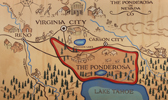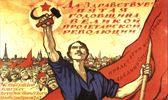
Government control in the field of economics is nothing new to humanity. Central planning, wage and price controls, taxes, stimulus spending, social safety nets, trade restrictions, regulations, crony favoritism – these have all long been assumed to be among the normal and accepted functions of government.
In 17th century France, recognizing that wealth had to be produced before it could be taxed, the king’s (Louis XIV) chief adviser Colbert was told “Laissez-nous faire” (let us alone) after asking the business community what the king could do to stimulate ‘economic growth’ in the nation. That phrase has come to symbolize and describe the nature of a free market.
Indeed, no matter what the form of government – whether an absolute monarchy or a free society based on individual rights – the creation of wealth is fundamental for any society to survive. In the attempt to create such wealth, various forms of forced labor and production have throughout history been the primary means by which the state-controlled economies approached that challenge.
For Western societies, all that changed with the discovery and emergence of capitalism over the past two centuries or so. Under the condition of ‘laissez faire,’ (capitalism), more people than ever before were able to lift themselves out of poverty, thanks to the unprecedented wealth that could be created in a market relatively free from government coercion and control. Continue reading »


